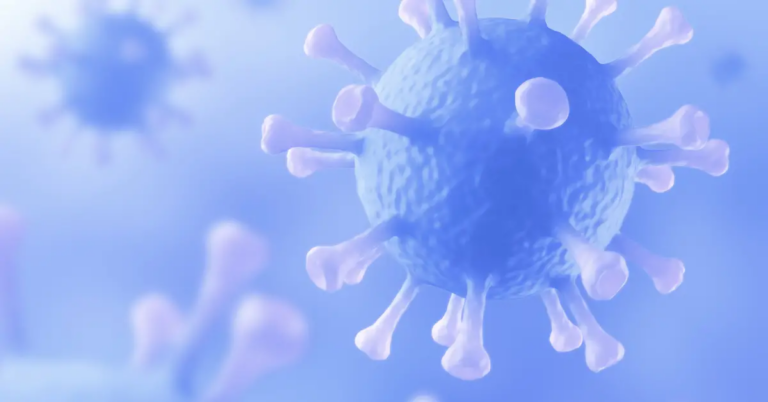More than 1 billion women will experience menopause by 2025, 12% of the entire world population of 8 billion women. It is estimated that hot flashes and night sweats, common symptoms of menopause, will be experienced by approximately 75% of them. These, along with other conditions such as mood changes, anxiety, and depression, can significantly reduce a woman’s quality of life as she ages. (1)
The most commonly used menopause management method is hormone therapy. However, this treatment comes with some risks, including documented cases of blood clots, stroke, and some cancers. Is there an easier way to manage your menopause?
What is the Gut Microbiome?
The gut microbiome is the population of microorganisms (microbiota) that live in your stomach. There are trillions of bacteria in your gastrointestinal tract, 90% of which are bacterial. This community comprises a wide range of bacteria, fungi, viruses, and protozoa with beneficial and detrimental effects on human health.
For good health, there must be a balance between “good” and “bad” bacteria. It shouldn’t be an issue with the beneficial kind outnumbering the bad. Gut dysbiosis can occur due to low-quality food, age, environmental pollutants, stress, and other factors.
Your Gut Health Matters
Recent studies are now focusing on gut health to answer why some women experience devastating menopause symptoms and others do not. Promising results indicate that a specific group of bacteria in the gut may be responsible for estrogen metabolism. This hormone fluctuates during menopause resulting in a host of uncomfortable symptoms.
“One set of functions that a specific group of gut bacteria has is managing our estrogen metabolism,” says Dr. Aviva Romm, author of the recently published bestseller Hormone Intelligence. She states that this group of about 60 different gut bacteria and fungi is collectively known as the estrobolome. We have much control over its makeup, making menopause symptoms easier to manage. (2)
According to Dr. Mindy Perez, author of The Menopause Reset, we have to have the right gut bacteria in our estrobolome for estrogen to be metabolized. Suppose estrogen is not broken down and metabolized. In that case, it cannot be used for various jobs, including contributing to cognitive function, mood regulation, skin and hair health, and even protecting against heart disease. “If your cells don’t use it, it’s stored in tissue, and that may lead to cancer. The estrobolome is important because it transforms estrogen into its usable form.” (2)
Signs of an Unhealthy Gut
The most common reason for an unhealthy gut (dysbiosis) is overeating processed foods, sugars, refined carbohydrates, harmful fats, and drinking alcohol daily. Antibiotics can also induce dysbiosis because they destroy the good and bad bacteria in your digestive system.
Gut health issues can manifest in a variety of ways, but some of the most common are:
- Frequent gas, bloating, and belching
- Stomach pain/cramps
- Frequent heartburn
- Food sensitivities
- Chronic halitosis (bad breath)
- Brain fog
- Mood disorders, i.e., anxiety, depression
- Sinus congestion
- Diarrhea
- Constipation
- Candida
- Skin problems, i.e. acne, rosacea
- Eczema
- Immune system disorders
- Allergies
- Headaches
Poor digestion can lead to several diseases and illnesses. Among them are:
- Obesity
- Celiac disease
- Leaky gut syndrome
- Irritable bowel syndrome (IBS)
- Colorectal cancer
- Heart disease
- Inflammatory bowel diseases
- Diabetes
- Polycystic ovary syndrome
- Liver disease
- Parkinson’s disease
- Dementia

Gut-Hormone Connection
Hormones are chemical messengers that control and regulate various bodily functions. Endocrine glands regulate, manage, and synchronize physical processes, manufacture, and release them into circulation. Human cells have hormone receptors that can communicate with other cells.
Hormones promote body temperature, metabolism, cognitive function, blood glucose levels, sexual function, and various other things. Your body would not be able to operate without them. The hypothalamus has long been considered the endocrine system’s sole controller. According to recent research, the gut microbiome may act as a “virtual endocrine organ.”
In this way, the gut generates hormones directly and tells the endocrine glands how much of each hormone is required. Thus, your gut microbiota significantly impacts almost every bodily hormone. Let’s look at three examples: estrogen, thyroid, and melatonin.
How Microbes Influence Estrogen Levels
The gut microbiome contains a group of organisms known as the estrobolome that can metabolize estrogen, implying it can change the body’s circulating estrogen. The estrobolome produces beta-glucuronidase, an enzyme that transforms estrogen into its active form so it can bind to estrogen receptors. It does so by regulating estrogen-dependent bodily processes. The estrobolome is responsible for generating the proper amount of beta-glucuronidase. A hormonal imbalance of estrogen can result if it creates too much or too little, as can happen with dysbiosis. It might eventually lead to estrogen-related disorders and illnesses.
Gut Health and Estrogen-Related Diseases
Estrogen is the most significant female sex hormone, although it plays a far less important role in men. Estrogen promotes and maintains the reproductive system in women and secondary sexual characteristics such as breasts and pubic hair. You may observe how estrogen levels vary throughout your life.
Estrogen is also essential for a lot more than simply maintaining female characteristics. For example, this hormone is critical to bone health. Estrogen regulates bone turnover and aids in the prevention of bone loss, as well. It’s also necessary for heart health since it helps prevent blood vessel inflammation and regulates cholesterol levels. Estrogen has been shown to assist in the proper functioning of the brain. Estrogen-related illnesses are quite prevalent, affecting both men and women.
Estrogen’s Link to Type Diabetes
A person with type 2 diabetes cannot respond appropriately to insulin. When this happens, cells in your muscles, fat, and liver cannot absorb enough glucose from your circulation. It leads to chronically high blood sugar levels, which, if not reversed, can lead to type 2 diabetes.
Estrogen may assist cells in responding to insulin, according to research. In the case of dysbiosis, however, estrobolome function may be compromised, impairing your cells’ ability to respond to insulin’s demand. It might explain why postmenopausal women are more prone to develop type 2 diabetes. A dysfunctional estrobolome might lower estrogen levels even further, putting her at risk of this illness.
Estrogen Involved in Diseases Common in Women
Estrogen is also linked to various female illnesses, including weight gain/obesity, heart disease, osteoporosis, and breast cancer. Menopause is said to raise the incidence of these diseases. Although additional study is required, imbalanced gut bacteria can reduce estrogen levels and raise the risk of many illnesses.
Gut Microbiome and Thyroid Hormones
It is essential for human life that the thyroid gland, an organ with a butterfly shape in the lower part of the neck, works properly. The pituitary gland releases thyroid-stimulating hormone (TSH) into circulation, which stimulates the thyroid gland to produce triiodothyronine (T3) and thyroxine (T4).
All tissues in your body are affected by thyroid hormones. For example, they help control the heart rate, body temperature, brain activity, and metabolism.
High TSH levels are linked to an altered gut microbiome composition. You may not be able to produce enough T3 and T4 if you have too much TSH. It can result in hypothyroidism or an underactive thyroid. Hypothyroidism has been connected to an increased risk of obesity, heart disease, and other illnesses.
Gut Microbiome and Melatonin Levels
Melatonin is a hormone produced by the brain in response to darkness. It controls your circadian rhythm, which is your sleep-wake cycle. Your brain, however, needs adequate amounts of serotonin to generate a sufficient quantity of melatonin.
In addition, sleep deprivation may be the reason and consequence of low melatonin levels. Chronic sleep deprivation has been linked to gut bacteria imbalance, which can lead to dysbiosis. It might cause a drop in serotonin-producing bugs, lowering melatonin production.
The following research demonstrates that a disrupted gut microbiome may result in inflammation throughout the body, raising the risk of metabolic syndrome, obesity, and type 2 diabetes.
How to Improve Gut Health and Hormones
Here are some natural methods to increase gut health and hormonal balance.
Take a Daily Postbiotic Supplement Instead of a Probiotic
Adding a postbiotic supplement to your diet is an excellent way to maintain a healthy gut. Even though probiotics are becoming increasingly popular, studies suggest that postbiotics are preferable. That’s because probiotics, by and large, contain only a few bacterial species, some of which may not significantly improve microbial balance or general health.
In contrast, postbiotics are by-products of bacterial fermentation in the lower gut. Experts think they may be responsible for most of the health advantages attributed to fiber consumption. In other words, postbiotics may provide a slew of additional health advantages over those bacteria.

Reduce Stress
An altered gut microbiome has been linked to chronic stress. Walking, meditation, yoga, spending time in nature, listening to soothing music, receiving a massage, or playing an instrument can reduce stress.
Improve Your Diet
Nourishing your estrobolome is the best action you can take to look after your gut health. It means including a variety of plant foods in your diet because they contain fiber, polyphenols, and probiotics essential for maintaining the balance of your estrobolome bacteria. These include fruits, vegetables, nuts, seeds, spices, and herbs. “You have to feed the good bacteria in your gut to navigate menopause,” Dr. Pelz says. “If you don’t, it will be a rocky ride.”
In addition to a healthy diet, pay attention to other factors such as environmental issues, antibiotics, sleep disturbances, and psychological stresses, which can also lead to an unbalanced estrobolome.
Women have long been told that menopause symptoms are a given and that controlling their intensity and effects on the body is basically out of their hands. It is encouraging to see that menopause symptoms can significantly influence what you eat.
The Gut and Hormonal Balance
Numerous research studies link a healthy gut and hormone function, impacting general health. Fortunately, a nutritious diet, the proper postbiotics supplement, and getting rest and enjoyment can quickly repair your gut’s health and hormonal problems.
References:
- The Gut–Hormone Connection: How Gut Microbes Influence Estrogen Levels – Kresser Institute
- Hormones & Gut Health: The Estrobolome & Hormone Balance (mariongluckclinic.com)
- Gut microbiota’s effect on mental health: The gut-brain axis – PMC (nih.gov)
- The Gut-Brain Connection: How it Works and The Role of Nutrition (healthline.com)
- The Connection Between Gut Health and PCOS — PCOS Awareness Association (pcosaa.org)
- Gut Health and Hormones – Leigh Ann Scott MD, Las Colinas, Irving TX
- Gut Health During Menopause Is Key—Here’s Why | Well+Good (wellandgood.com)
- Menopause Unveils Itself As The Next Big Opportunity In Femtech (forbes.com)
- The gut-brain axis: interactions between enteric microbiota, central and enteric nervous systems – PMC (nih.gov)
- Gut/brain axis and the microbiota – PMC (nih.gov)
- Mind-altering microorganisms: the impact of the gut microbiota on brain and behaviour – PubMed (nih.gov)
- The Human Brain in Numbers: A Linearly Scaled-up Primate Brain – PMC (nih.gov)
- Gut feelings: the emerging biology of gut–brain communication – PMC (nih.gov)
- Vagus Nerve as Modulator of the Brain-Gut Axis in Psychiatric and Inflammatory Disorders – PubMed (nih.gov)
- The Vagus Nerve at the Interface of the Microbiota-Gut-Brain Axis – PubMed (nih.gov)


















